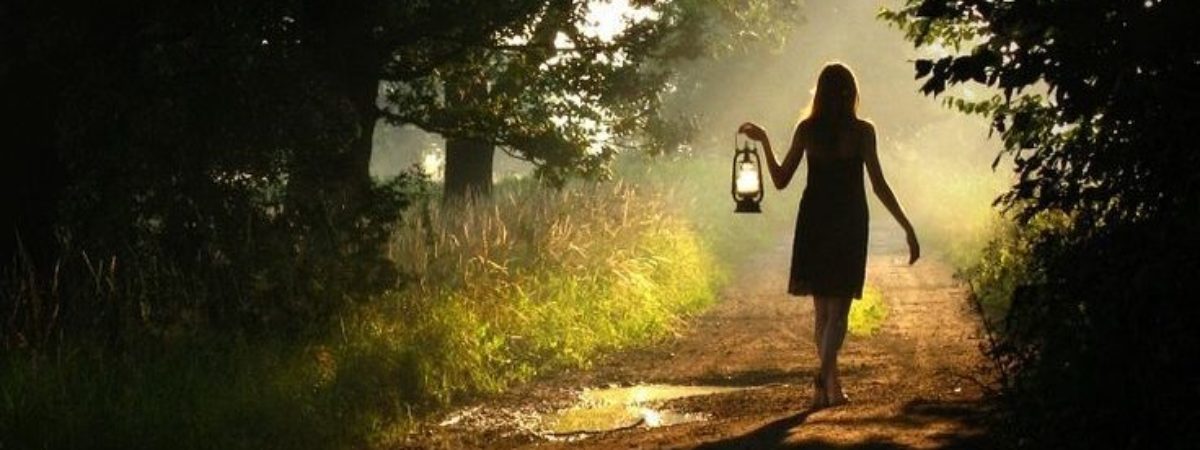We are good at emptying things. Dishwashers. Hampers. The trash. But how many of us are good at emptying ourselves — at letting go so we might be open to receive?
Here’s a Zen story that may help in our understanding.
A young student desired to learn from a certain master and was invited to his house for an interview.
The student began talking about all he knew, his past teachers, spiritual experiences, philosophies and on and on. As the master sat there and listened silently, he began to pour a cup of tea. He poured and poured and even after the cup was filled, kept pouring until the tea was spilling everywhere.

The student finally noticed what was happening and stopped his monologue to shout, “Stop pouring! The cup is full!”
The teacher said, “Yes, and so are you. How can I possibly teach you?”
I think “emptying ourselves” to receive might be one of the toughest spiritual challenges around. But it’s also at the heart of all true spiritual growth. When we are filled with ourselves, nothing else can enter. Divine love. Graces. Good.
But emptying ourselves takes a certain kind of courage. At heart, it’s about “letting go,” a topic I write about a great deal. We have to enter into a “poverty of spirit” that isn’t always comfortable. That means emptying ourselves of things we might want to hold on to — our pride, intellect, spiritual experiences, material gain — whatever it might be that blocks the Divine good longing to fill us.
I’m not speaking here to those who may already feel drained. That emptiness, I believe, comes exactly from NOT opening ourselves to be filled with the goodness, support or nurturing we need from ourselves or others. The Zen saying is true that “you can’t pour from an empty cup,” that is, we can’t give from what we don’t have first within ourselves, a lesson I’m always learning.
So how do we empty ourselves to receive in the busy-ness of our daily lives? After all, many of us are focused on jobs, families, caregiving for aging parents, school — whatever it may be — and time doesn’t allow for spiritual practices or for even the concept of letting go.
 Maybe it’s not that complicated. We “empty ourselves” when we forget ourselves in brief moments of service to others, by offering a kindness, a smile, a door opening, an offer to drive an elderly neighbor to an appointment, listening to a friend or family member who needs support.
Maybe it’s not that complicated. We “empty ourselves” when we forget ourselves in brief moments of service to others, by offering a kindness, a smile, a door opening, an offer to drive an elderly neighbor to an appointment, listening to a friend or family member who needs support.
When we empty ourselves with these small acts of love, a greater good fills us, one of which we are all a part.
We can also empty ourselves by having beginner’s mind — a tenet of some spiritual practices — when we see all things as new. In my own life I often find myself in a rut before I know it. That rut may be the same habitual acts that although need to get done, become boring after awhile. No surprises. Same old, same old.
In his book The Re-Enchantment of Everyday Life author Thomas Moore explains how we must let go of what we know in order to uncover the new.
“The first step is to recover a beginner’s mind and a child’s wonder, to forget some of the things we have learned and to which we are attached. As we empty ourselves of disenchanted values, a fresh paradisiacal spirit may pour in…we may discover the nature of the soul and the pleasure of being a participant in the extravagance of life.”
This time of year it’s especially easy to get sucked into the holiday chaos, of falling into the habitual yearly routine of putting up the Christmas tree and outdoor decorations or holiday shopping and baking. When this happens, perhaps we can stop and take a breath, find a quiet physical space where we allow ourselves to be emptied of the frenzy so that the silence and love of the one who loves us can enter.
 Another small exercise that might help comes from retreat leader Joyce Rupp. In a short ritual to help people realize the emptiness and fullness of their lives, she uses an ordinary cup. From her book The Cup of Our Life: A Guide for Spiritual Growth, she writes:
Another small exercise that might help comes from retreat leader Joyce Rupp. In a short ritual to help people realize the emptiness and fullness of their lives, she uses an ordinary cup. From her book The Cup of Our Life: A Guide for Spiritual Growth, she writes:
“Hold an empty cup in your hands. Look at all the room the cup has for filling. Picture an inner part of yourself. Notice how much room there is for filling. Hold the cup out before you in the gesture of a beggar. Ask God to fill you.”
At the heart of it, we all thirst to be filled to overflowing. But first, we must venture the brave step of emptying ourselves. We can’t have one without the other.
May we have the courage to embrace both.
3 thoughts on “Emptiness and fullness”
Comments are closed.

Lovely, and thank you Marielena. ♡
Beautiful writing
Thank you so much, Ani.